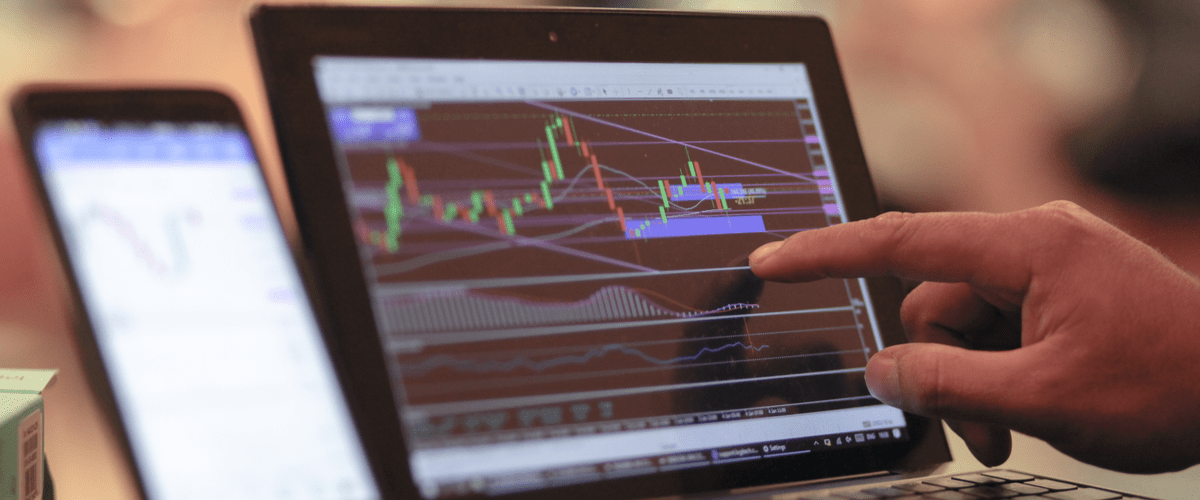
The difference between ECN and Market Maker brokers
Just as there are many different types of traders, there are also many different types of brokers . Not every broker functions the same under the hood. In this blog, two types of brokers will be distinguished from each other. These are ECN brokers on the one hand and Market Maker brokers on the other. Where do the differences lie and is one better than the other?
ECN Brokers
When you choose to trade via an ECN broker, you trade directly at the (sharpest) prices of a so-called liquidity provider. These are often large financial institutions, such as banks. Because you trade directly via the liquidity provider, the broker will not be able to manipulate the prices. The broker as an intermediary disappears, as it were, which creates a direct relationship between trader and liquidity provider. An additional advantage is that transactions can be executed very quickly.
ECN brokers have the best bid and ask prices of the moment, which means your orders will be executed relatively easily and cheaply. The lowest possible spread is used. The spread can vary depending on the product. Some very liquid trading pairs will not even use a spread. Extra fast order execution is guaranteed by the larger ECN brokers, because they use the faster data centers in, for example, London or New York. You can think of LD5 and NY4. These data centers maintain all connections via fiber optic.
Because ECN brokers aim for as little manipulation of the current prices of investment products as possible , they will in most cases earn their money with transaction costs. In addition, money can be earned by using spreads . ECN brokers therefore make the most profit on active traders who are profitable in the long term. The broker is therefore not necessarily your enemy.
However, every ECN broker is different. The earning models can therefore differ. However, there are also many differences in terms of ease of use, reliability and offer. It is always wise to compare brokers , so that you can benefit from maximum profits at minimum costs.
ECN Brokers: the benefits
- You can often get better bid and ask prices because they come from different sources.
- It is possible to trade at prices that have little to no spread at certain times.
- ECN brokers do not trade against you, because they only pass the orders on to the other party
- Prices can be more volatile, this is interesting for scalping purposes.
ECN Brokers: the disadvantages
- Many ECN brokers do not offer integrated charts and news feeds.
- The trading platforms are often less user-friendly.
- Stop-loss and break-even points are more difficult to calculate due to variable spreads.
- Traders must pay commission for every transaction made.

Market Maker brokers
A market maker broker is fundamentally different from an ECN broker. Where you trade directly at non-manipulated prices with ECN brokers, the prices will be adjusted with market maker brokers. It is relevant to understand that with market maker brokers you are not so much dealing with the real market, but more with a kind of sham market that is based on the real market. A market is artificially created (maker). The role of the broker as an intermediary is relatively large.
A market maker broker will always have to take an opposite position. For example, when you open a short position in forex, the market maker broker will have to buy long. The same thing happens the other way around, of course. This model leads to a market maker broker benefiting greatly from you ‘losing’. After all, that is the moment when the market maker broker earns money and wins.
Market maker brokers constantly adjust prices so that they are favorable to themselves. Such brokers earn most of their money with the (fixed) spread that is passed on to the trader. This is the difference between the bid and ask price. Because there is a lot of competition between different market maker brokers, the spread will not be too high. After all, a high spread makes a broker unattractive and gives them a poor competitive position.
A distinction should be made between retail brokers and institutional brokers. The latter category is formed by the larger institutions. These are usually banks. They often pass on a bid or ask price to another large institution. Retail brokers are companies that focus specifically on (forex) trading for private traders.
Market maker Brokers: the advantages
- Usually you have access to free charting software and news feeds.
- Market maker brokers often have user-friendly platforms.
- Currency price movements can be less volatile compared to ECN Brokers, this can be a disadvantage for scalpers though.
Market Maker Brokers: The Disadvantages
- Market makers may have a clear conflict of interest as they can trade against you.
- They may show different bid and ask prices than another broker is showing.
- A huge slippage can occur when news is released.
The conclusion
The type of broker is of great importance to you as a trader. It has a huge impact on your trading performance. Therefore, weigh the pros and cons of brokers carefully and compare brokers.
Our reading tips
for the novice investor
